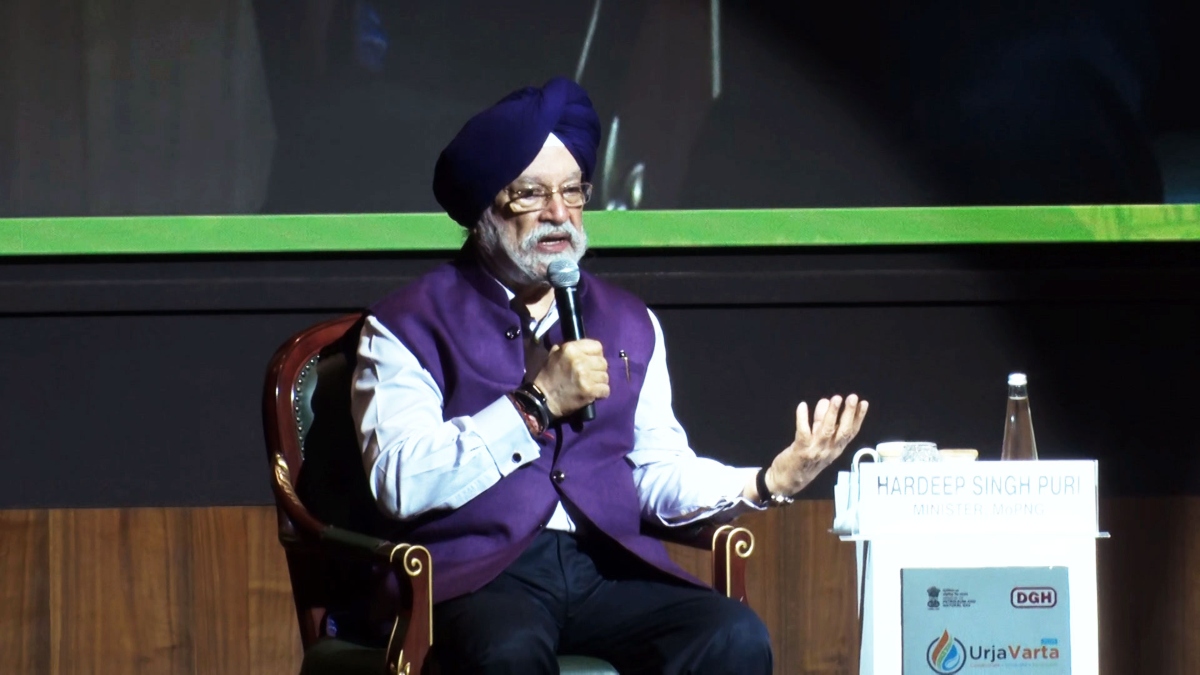Union Petroleum Minister Hardeep Singh Puri has firmly countered White House trade adviser Peter Navarro’s description of India as an “oil laundromat,” stressing that New Delhi has operated fully within international rules while stabilising global energy markets.
Writing in The Hindu, Puri argued that India’s position as the world’s fourth-largest petroleum exporter long predates the Ukraine war and its trade volumes and refining margins have remained consistent since Russia’s invasion. He remarked that critics wrongly accused India of profiteering, noting that Europe itself relied on Indian refined fuels after imposing a ban on Russian crude.
Navarro’s accusations against New Delhi
Navarro, a Trump administration official, had recently accused India of turning into a hub for laundering Russian oil revenues, claiming New Delhi was financing President Vladimir Putin’s “war machine.” In a barrage of posts on X, Navarro referred to the Ukraine war as “Modi’s war” and alleged that India’s oil industry had transformed the country into a massive refining centre for Russian crude. His remarks drew sharp responses from Indian officials, who highlighted the legal and transparent nature of India’s transactions.
Surge in Russian imports after Ukraine war
Following Moscow’s invasion of Ukraine in February 2022, India’s imports of Russian crude rose from less than 1 per cent to nearly 40 per cent of total intake. Refiners took advantage of steep discounts as Western buyers shunned Russian supplies, a CLSA report said. While this secured cheaper energy for India, critics in Washington argued that refined products exported to Europe indirectly undermined sanctions. Puri, however, emphasised that Russian oil had never been under blanket sanctions like those applied to Venezuela or Iran. He explained that the G7 and European Union deliberately set up a price-cap mechanism to ensure continued supplies while limiting Moscow’s revenue stream, and that India had fully complied with all 18 rounds of sanctions packages.
India’s role in global energy stability
In his article, Puri highlighted that every shipment of Russian crude imported into India had followed international norms, using legal shipping, insurance, and audited trading channels. He maintained that India had acted not only in its national interest but also in the broader interest of global stability. According to him, India’s purchases had prevented oil prices from spiralling out of control and kept supply chains functioning. A recent report by brokerage firm CLSA supported this view, warning that a sudden halt to Indian imports could leave up to one million barrels a day stranded—about 1 per cent of global supply—and push crude prices up to USD 100 per barrel.
Domestic measures to protect citizens
Puri also pointed to steps taken at home to shield Indian households from global price shocks. He said public-sector oil companies had absorbed losses of up to ₹10 per litre on diesel, while the government slashed central and state taxes. In addition, refiners were required to sell at least half of their petrol and 30 per cent of their diesel output within the domestic market. These measures, he argued, ensured that not a single retail outlet ran dry and that fuel prices remained stable for ordinary citizens despite the global turmoil.
Russia’s irreplaceable role in oil markets
Highlighting the structural realities of the oil market, Puri insisted that Russia’s role as the world’s second-largest producer—supplying nearly 10 per cent of global oil—could not be easily substituted. He cautioned that ignoring this fact risked destabilising global energy security. By adhering to international frameworks, India had helped avoid what could have been a catastrophic spike to $200 per barrel, he said.
A geopolitical backdrop of shifting alliances
The debate over India’s oil imports comes amid a broader reordering of global alliances. Analysts noted that while India defended its purchases, Europe itself had turned to Indian refined fuels to fill the gap left by banned Russian crude. Meanwhile, shifts elsewhere highlighted the fragility of global order. Billionaire investor Ray Dalio recently warned that President Donald Trump was pushing the United States “back to the 1930s,” with critics too fearful of retaliation to speak out. a Dalio report said. In Asia, Chinese President Xi Jinping and Russian President Putin deepened ties after their talks in Beijing, with China offering visa-free travel for Russian citizens on a trial basis. At the same time, unrest in Indonesia following President Prabowo’s policies prompted Malaysia to issue travel warnings to its citizens
Standing firm
In pushing back against Navarro’s allegations, Puri framed India not as a violator of sanctions but as a responsible actor keeping markets steady. He reiterated that India’s refining industry had long played a central role in global supply chains and that its energy diplomacy was both lawful and necessary. For New Delhi, the message was clear: accusations of profiteering overlooked both the legal framework governing Russian oil and the stabilising role India continues to play in global energy markets.
)